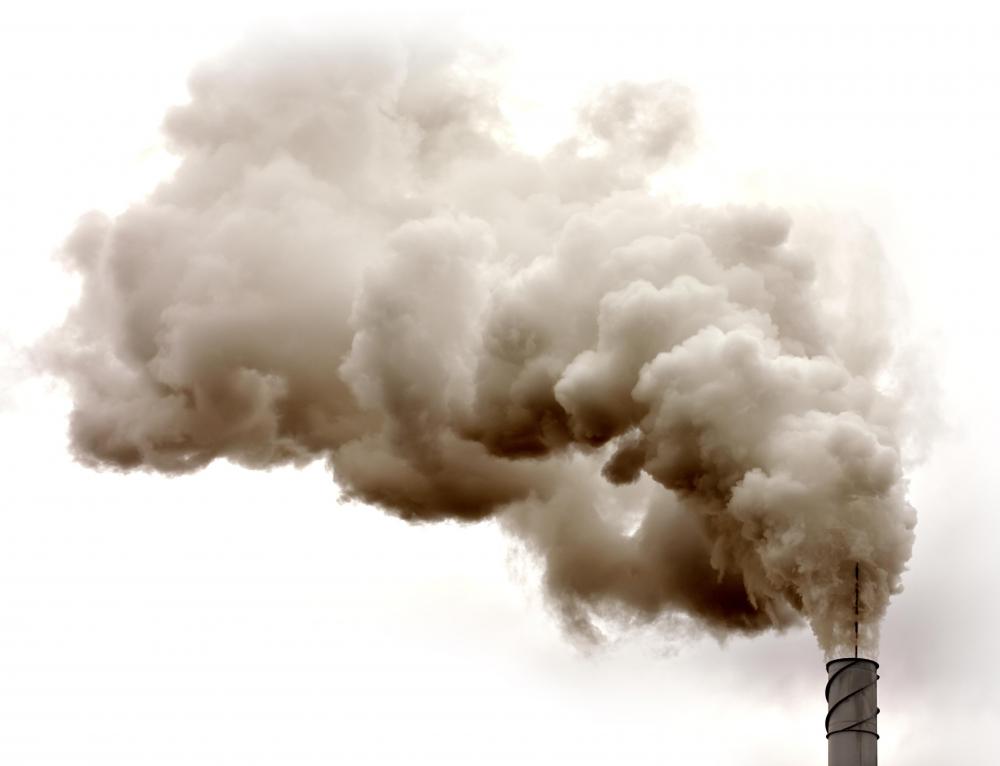At WiseGEEK, we're committed to delivering accurate, trustworthy information. Our expert-authored content is rigorously fact-checked and sourced from credible authorities. Discover how we uphold the highest standards in providing you with reliable knowledge.
What are Energy Emissions?
Energy emissions are substances that are released into the air through the combustion of fossil fuels. Many scientists believe that the release of energy emissions into the air is a primary cause of air pollution and contribute to the acceleration of the greenhouse effect and global warming. While there is disagreement about the concept of man-made global warming, there seems to be consensus among many that regardless of one’s views on global warming, reducing energy emissions is a positive and important goal for the world’s population.
Although interest in alternate forms of energy such as wind, solar and geothermal, has grown as people have looked at ways to reduce energy emissions, the majority of the world’s energy consumption is still powered through the use of fossil fuels. This is because fossil fuels, which consist of petroleum, natural gas and coal, are highly effective sources of energy. The root of this energy is in their organic origin, as they are composed of the remains of prehistoric plants and animals.

As prehistoric plants and animals died, their remains combined with and were covered by mud, silt, sediment and water to create layers of organic material. Over time, as the remains decomposed, they were broken down into simple carbon atoms or a combination of hydrogen and carbon atoms known as hydrocarbons. The remains of both animals and plants that lived in prehistoric bodies of water formed the basis of petroleum and natural gas, while coal was formed from the remains of trees and other plants found on land.

To harness and utilize the energy found in fossil fuels, they need to be combusted. The combustion process releases the carbon and hydrocarbons that are found in the coal, petroleum and natural gas into the air. Hydrogen that is released in the air combines with oxygen to form water vapor. Carbon that is emitted combines with oxygen present in the atmosphere to form carbon dioxide, which is considered to be a greenhouse gas.
A greenhouse gas is a gas that traps the heat from the sun and helps to keep the surface of the earth warm. While a certain amount of greenhouse gases are necessary to keep the earth’s temperature from being too cold to sustain life, many believe that an excess of greenhouse gases in the atmosphere could lead to a critical and dangerous warming of the earth. Those who believe in man-made global warming believe reducing energy emissions containing carbon is important in slowing or preventing the development of the greenhouse effect.
Combustion of fossil fuels also releases other substances and particulates into the air. For example, coal generally contains a high amount of sulfur, therefore when it is burned it emits sulfur into the air. Sulfur combines with oxygen to form sulfur dioxide, which is a major component of acid rain. Nitrogen is another common gas that is released in the air through combustion of fossil fuels. Nitrogen combines with oxygen in the air to form nitrogen oxides, which is another component of acid rain.
AS FEATURED ON:
AS FEATURED ON:












Discuss this Article
Post your comments